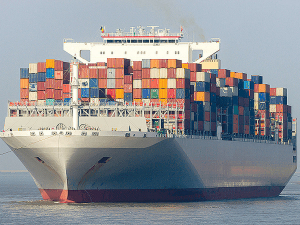Fonterra’s exit from Australia ‘a major event’
Fonterra’s impending exit from the Australian dairy industry is a major event but the story doesn’t change too much for farmers.
 Rabobank estimates that around 15% of all products coming off NZ farms are now being shipped to China.
Rabobank estimates that around 15% of all products coming off NZ farms are now being shipped to China.
Rabobank says NZ’s food and agri sector’s heavy exposure to China has been magnified by the coronavirus outbreak.
In its March Agribusiness Monthly Report, the specialist rural banker says that in 2019, 31% of the sector’s exports by value were destined for China.
Rabobank estimates that around 15% of all products coming off NZ farms are now being shipped to China. It points out that NZ beef, sheepmeat and cheese products are especially exposed to the Chinese foodservice industry.
“Secondary markets exist for NZ products outside of China, but usually they pay less for products typically shipped to China,” the report says.
It says, in the last week of February, anecdotal evidence suggested that logistics were improving in China. However, the bank warns that any reacceleration of infection rates in China would set any recovery back significantly.
In late February, coronavirus made its first appearance in a wide range of countries and gained a significant foothold in South Korea, Iran, and Italy.
“Clearly, its impacts will be worse if coronavirus gains a foothold in NZ’s other important export markets and globally important economies, like Japan and the US,” Rabobank adds.
It says the impact of coronavirus will also depend on how China fares.
“If the virus is contained in China, the NZ food and agri industry will be better placed to weather the storm of its spread to other markets.”
Meanwhile, bank suggests the sector is likely to gain some offset to the virus’s spread via exchange rates.
“The worse the virus gets, the lower the New Zealand dollar will fall,” the report concludes.
“Other market developments may help reduce the impact of the virus on some commodities. But the industry cannot hope to avoid lower pricing and a slowdown in sales if a pandemic ensues.”
The Meat Industry Association of New Zealand (MIA) today announced that Chief Executive Officer Sirma Karapeeva has resigned from the role.
The winners of the 2026 Hawke’s Bay/Wairarapa Dairy Industry Awards were announced at the annual awards dinner held at Copthorne Solway Park in Masterton on Thursday evening.
Environment Southland is welcoming this week’s decision by the Environmental Protection Authority (EPA) to approve the release of Blaptea elguetai, a leaf‑feeding beetle that will help control the highly invasive Chilean flame creeper.
This March, the potato industry is proudly celebrating International Women’s Day on 8 March alongside the International Year of the Woman Farmer, recognising the vital role women play across every part of the sector — from paddocks and packhouses to research, leadership, and innovation.
Fruit trader Seeka posted a record profit and returns to shareholders in 2025.
Recent weather events in the Bay of Plenty, Gisborne/Tairawhiti, and Canterbury have been declared a medium-scale adverse event.

OPINION: A mate of yours truly reckons rural Manawatu families are the latest to suffer under what he calls the…
OPINION: If old Winston Peters thinks building trade relations with new nations, such as India, isn't a necessary investment in…